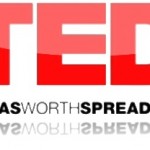 I find TED talks as interesting as the next person. The speakers are generally experts at engaging listeners in interesting topics. But it doesn’t take long to have heard enough of them to get a bit dizzy with all the disparate ideas. There is everything from the lessons learned from tying your shoes to technology solving the worlds biggest problems; from “The Earth is Full” to “Abundance is Our Future.” I recently watched a TED talk on “What’s Wrong with TED Talks?” The irony of that alone could make your head spin. It all reminds me of Solomon’s dictum: “The writing of many books is endless, and excessive devotion to books is wearying to the body.” If he thought books were endless in his day I can’t imagine what he would think of our digital age.
I find TED talks as interesting as the next person. The speakers are generally experts at engaging listeners in interesting topics. But it doesn’t take long to have heard enough of them to get a bit dizzy with all the disparate ideas. There is everything from the lessons learned from tying your shoes to technology solving the worlds biggest problems; from “The Earth is Full” to “Abundance is Our Future.” I recently watched a TED talk on “What’s Wrong with TED Talks?” The irony of that alone could make your head spin. It all reminds me of Solomon’s dictum: “The writing of many books is endless, and excessive devotion to books is wearying to the body.” If he thought books were endless in his day I can’t imagine what he would think of our digital age.
Oversimplified or Engaging Listeners
Benjamin Bratton, an associate professor at UC San Diego, gave the TED talk entitled “What’s Wrong with TED Talks?” In it he makes some interesting points. While he’s not the first to criticize TED, he does articulate the criticism of oversimplification well. I was intrigued by Prof. Bratton’s point of view so looked into other things he has written and found this article “The Black Stack.” It is a fascinating article in a number of respects but one thing stuck out to me as I thought about it in the context of TED talks. In describing the Black Stack he said:
“Its blackness is the surface of a world that can no longer be composed by addition because it is so absolutely full, overwritten, and overdetermined, that to add more is just so much ink in the ocean. Instead of tabula rasa, this tabula plenus allows for creativity and figuration only by subtraction, like scratching paint from a canvas—only by carving away, by death, by replacement.”
We live in a paradoxical world where engaging listeners requires some degree of “oversimplification” precisely because the issues we face are so complex. As Chris Andersen, curator of the TED Conference, ably points out in his response to Prof. Bratton, “Our minds are ground zero in a battle for attention. And most of the time, the memes that matter are getting buried.” And it seems that even Prof. Bratton understands this to some degree when he talks about “tabula plenus.”
It takes creativity to reduce a complex topic down to an 18-minute talk. And it occurred to me that this is what artists have been doing for ages – distilling the essence of something down to a canvas and paint. We enjoy works of art because they present different and compelling perspectives from our own. We don’t go to art museums to become experts in a specific topic, unless of course your topic is art itself.
TED may just be the quintessential museum of art for our age. There are as many different ideas and perspectives presented in the oeuvre of TED as any museum you can visit in a metropolitan city. And it largely (one might even argue primarily) lives in the digital space. So my recommendation is to approach TED like you might an extensive collection of art and alleviate the vertigo.
Application to Your Marketing
So what does this all have to do with marketing? Well, your organization and products are complex. Your brand and marketing communications shouldn’t be. It’s a very similar issue. It’s not about dumbing down, it’s about introducing and engaging listeners in a crowded environment. That takes creativity and discipline. Contact us if you would like to learn more.

No comments yet.